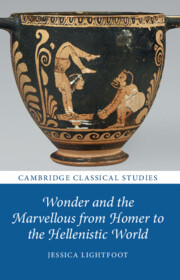Acknowledgements
This book is a revised version of my doctoral thesis, submitted in Oxford in the summer of 2018. It is a pleasure to acknowledge and thank the many people and institutions who have helped me along the way at every stage. I am very grateful to the Arts and Humanities Research Council for funding my doctoral work and to St John’s College, Oxford for further financial support over the course of my graduate studies. My election to a Junior Research Fellowship at Trinity College, Cambridge in 2018 made the transformation from thesis to book possible. I am grateful to both the College and the Faculty of Classics at Cambridge for providing me with such an enjoyable and stimulating intellectual environment over the last few years. I am also grateful to the Department of Classics, Ancient History and Archaeology at the University of Birmingham for allowing me to take leave to complete the final stages of this book. I thank all of these institutions for their generous and sustained support.
I was extremely lucky to benefit from the insight of two wonderful supervisors and many other marvellous interlocutors over the course of my time in Oxford. Chris Pelling went above and beyond the call of duty while helping me to navigate the difficult early stages of this project and has always been on hand with kind and wise guidance. Felix Budelmann has been a constant source of encouragement and has been ever generous with his time and sage advice. I am very thankful to both for their continued support. I would also particularly like to thank Gregory Hutchinson and Richard Rutherford for offering kind and useful feedback over the course of the early stages of the thesis; Oliver Thomas for sharing his then unpublished work on the Homeric Hymn to Hermes with me; and my examiners, Tim Whitmarsh and Tim Rood, for their thoughtful advice.
Over the last few years I have been incredibly fortunate in having the opportunity to teach so many wonderful students, many of whom allowed me to first try out and discuss – perhaps without quite realising it at the time – so many of the ideas in this book. My time as a Lecturer at Magdalen College, Oxford in 2015–17 during my doctoral studies was particularly formative. I thank all those students who patiently put up with my thaumatic thoughts in this period, and after.
I owe an especial debt of thanks to Richard Hunter, who first encouraged me while I was completing my MPhil in Cambridge in 2014 and has been a tremendous source of support ever since. A better mentor is impossible to imagine. As well as helping me sharpen my thoughts on many points, Rebbeca Lämmle has done much to keep my chin up with an incredible mixture of both humour and erudition over the last few years. During this same period I have also been extremely fortunate to benefit from Renaud Gagné’s wise discussions and advice. At a crucial stage on this book’s route to publication, Armand D’Angour was incredibly generous with his time and – most crucially – encouragement. I will be forever grateful for James Clackson’s advice and kindness. I thank them all.
I would also like to thank Michael Sharp and his team at Cambridge University Press, and the two anonymous readers, whose comments very much improved the final product.
Last, but not least, I am very grateful to my family and Peter Agócs for their unfailing love and support.

